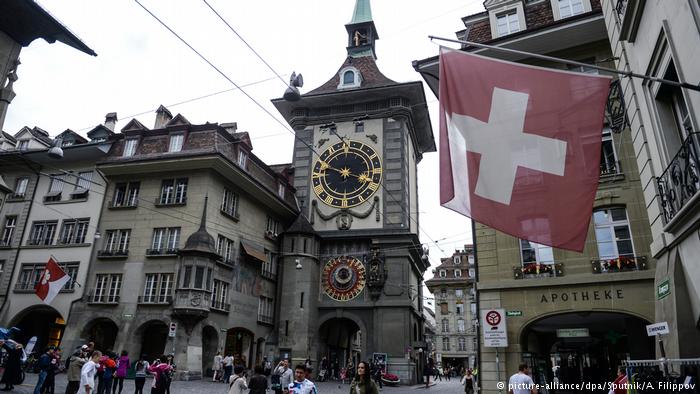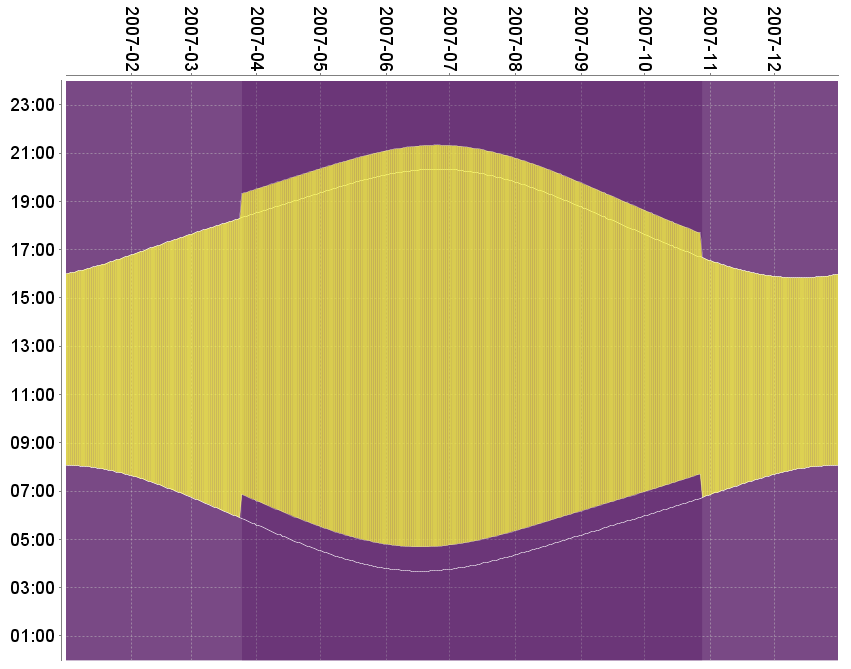Europe last sets the clock to winter time

The clock tower in Bern (Switzerland) with the astronomical clock of 1530 (below)
On the night from Saturday to Sunday October 28, 2018, the EU countries will synchronously turn the hands one hour back. Most likely, they will do it last time. According to the results of the referendum, the European Commission decided that from 2019 the clock will no longer be transferred.
Until April 2019, each EU country must decide on how long it stays - in the winter or summer. There are fears that the picture of time zones in the European Union will chaotically change. On the other hand, it can, on the contrary, be harmonized if the neighboring countries agree with each other.
Who came up with it?
At the equator of the Earth throughout the year, the same length of day and night is maintained: for 12 hours. There are no problems with sleep disorders, energy conservation, and so on. In winter, sunrise and sunset occur almost at the same time as in summer. Unfortunately, this is not the case at other latitudes. Due to the tilt of the earth's axis, 23.44 ° solstices and equinoxes occur at different times of the year. In other words, in the northern hemisphere summer day is longer than winter.

The time of sunrise and sunset over the year with the transition to summer time and without it, the time in Greenwich (UK). Data from the Daylight Chart program
This is where the idea of switching the clock to summer time was born. The idea belongs to the New Zealand entomologist and amateur astronomer George Hudson.. In 1895, he submitted to the Wellington Philosophical Society an article proposing a two-hour shift in the hands of the clock to "save the daylight." Article published in 1898 .
The idea was noticed in England, where the aristocrat and businessman William Willet became its main propagandist. In 1907, with his own money, he published and replicated the pamphlet "On the waste of daylight" (eng. "The Waste of Daylight"). According to his proposal, the clock should be transferred every Sunday of April to 20 minutes at 2 am (only 80 minutes in April), and on Sundays of September - to be reversed according to the same scheme. This will allow England to save £ 2.5m in lighting costs.
Pure scientific ideas from "nerds" rarely attract the attention of influential political circles. But in this case it happened. Perhaps William William Pierce’s acquaintance of William Willeth at the golf club presented the idea to the British parliament on February 12, 1908, but was not accepted, although Willet promoted it until his death in 1915.
The German Empire and its ally Austria-Hungary were the first to formally introduce summertime during the First World War in order to save coal in wartime. This momentous event took place on April 30, 1916.
The example of the enemy was immediately followed by the UK and the allies. Russia and several other countries waited until next year, and the United States introduced summer time in 1918.

The first time switch to summer time in Ohio, USA. Source
After the war, most countries refused to transfer watches, but with the beginning of the Second World War, it was again used almost everywhere.
In recent years, several countries have abolished summer time, including Russia and Belarus in 2011. But in Russia, the reform caused the population to complain about the darkness in the morning, so summer time was canceled in 2014 . Arrow transfer was canceled in Argentina, Kazakhstan, Iceland, Turkey and other countries. Now the turn has reached the European Union.
Health effects
Scientific studies demonstrate conflicting results regarding the health effects of the clock shift. Depending on the place of residence and lifestyle of a person, translating arrows can give the body more daylight, which increases vitamin D production. There is a study that suggests the benefits of translating arrows to people suffering from depression.
On the other hand, switching arrows increases the risk of heart attack by 10% , disrupts sleep and reduces its effectiveness . Biorhythms of a person get off and adjust to a new schedule within a few weeks ( 1 , 2 ). Studies show that within a few weeks after the spring shift of arrows , the number of suicides among men increases.
Sleep disorders are the main negative consequence of the transfer of hours, so now some doctors recommend abandoning DST (daylight saving time). In many countries, controversies on this topic have been going on for decades.
Electricity saving is generally called a myth : research has shown that lighting costs are virtually unchanged as a result of hours. An order of magnitude greater savings gives the transition to LED-lamps and "smart" sensors.
Situation in Europe
In Europe, universal daylight saving time was introduced in 1996: all countries synchronously turned the hands an hour forward on the last Sunday of March and an hour ago on the last Sunday of October. Now this rule is canceled. Tweet Violeta Bulc, European Commissioner for Transport:
The transport industry has traditionally suffered most from the transfer of arrows and the need to change schedules, so Violeta’s joy can be understood. She hopes that the European Parliament and national governments will promptly coordinate their actions, and calls for the start of "consultations at the state level to ensure a coordinated approach for all EU members."

Time zones in the European Union
Until April 2019, each EU country must decide whether it stays in the winter or summer.
The decision of the European Commission is based on the results of an online survey, which was attended by 4.6 million people in Europe. It is curious that 3 million of them represented Germany, that is, the representativeness of the survey is rather dubious. However, 80% of respondents voted to cancel summer time . European Commission President Jean-Claude Juncker said on ZDF: "People want it, it means we will do it." Chancellor Angela Merkel also agreed that this is “a very important issue.”

Astronomical clock on the Prague Town Hall, 1410 gothic design. According to the legend, after the completion of the work, the engineer pulled out his eyes to guarantee the uniqueness of the watch.
Only registered users can participate in the survey. Sign in , please.
